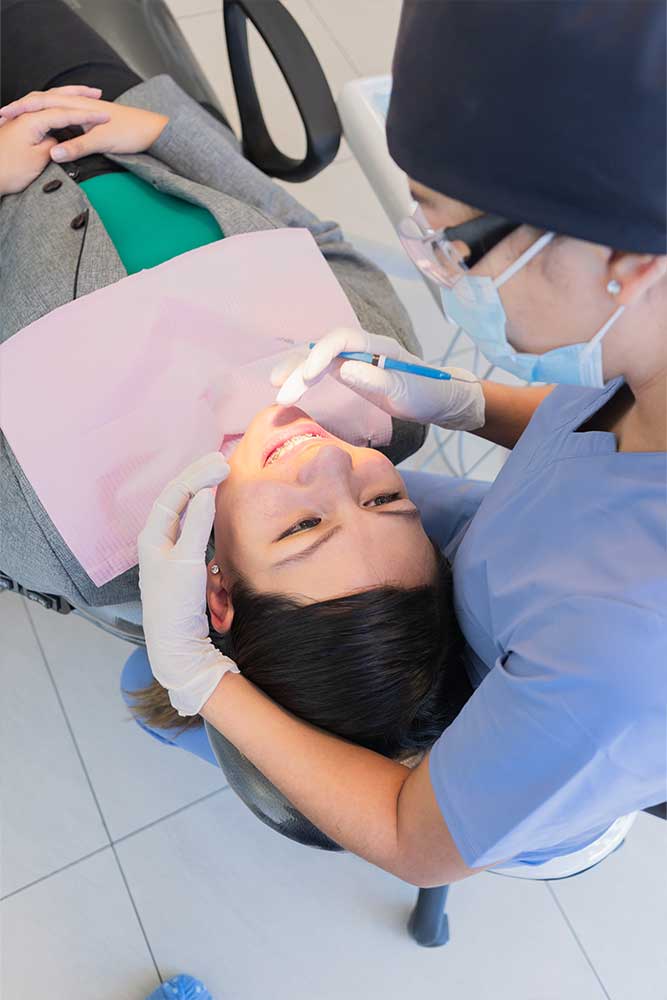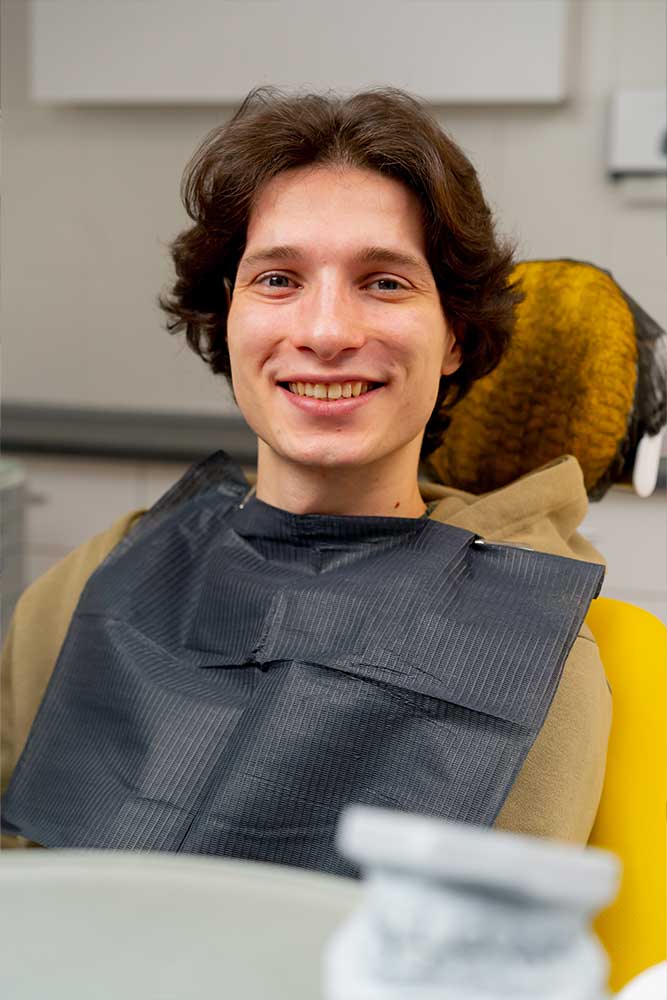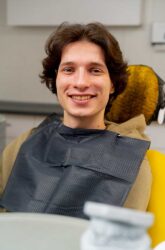Sedation Dentistry in Hamilton
Helping provide a comfortable experience for our patients.
Say goodbye to anxiety-filled dental visits with sedation dentistry at our Jackson Square Mall dentist office.


Anxiety-free dental care.
Sedation dentistry
in Hamilton
Helping provide a comfortable experience for our patients.
Say goodbye to anxiety-filled dental visits with sedation dentistry at our Jackson Square Mall dentist office.
Anxiety-free dental care.


What is sedation dentistry?
The term sedation dentistry describes one of the most common methods used to help manage the anxiety many patients get when visiting the dentist as well as any potential pain associated with dental procedures. Sedation dentistry can take the form of oral sedation (pills), IV sedation or inhaled sedation (laughing gas). Sedation dentistry is often confused with sleep dentistry but differs because unlike sleep dentistry, sedation dentistry allows a patient to be awake and communicative throughout a treatment. Sleep dentistry refers to the use of a stronger anesthesia that renders patients asleep or unconscious for duration of treatment.
Our Hamilton dentist office uses sedation dentistry when a patient’s level of anxiety interferes with their oral health or a required procedure involves a lengthy appointment or may cause a certain amount of pain. Feelings of drowsiness and a general lack of awareness brought on by the sedation help to keep patients relaxed and comfortable without the total sedation of sleep dentistry.

Types of sedation dentistry available at our Hamilton clinic
Before your dentist prescribes a form of sedation, a consultation is required regarding why sedation is needed and the patients medical background. Sleep and sedation dentistry are very common in modern medicine, but it is important that patients understand their options and what is involved. Our Hamilton sedation dentists generally offer three types of sedation: Oral, Inhaled and Intravenous (IV).
Oral Sedation Dentistry
Oral sedation will be given to a patient in the form of a pill. We recommend oral sedation when a mild to moderate sedative is required and the patient does not wish nitrous oxide (laughing gas) or an IV injection. A sedative pill will need to be taken by the patient prior to their appointment time to ensure it is working and effective before treatment begins.
Inhaled Sedation Dentistry
Another very common form of administered sedation is nitrous oxide (often referred to as laughing gas). Nitrous oxide is great for helping patients relax and distract them from the procedure. It is most often administered alongside a local anesthetic for pain management. Patients treated with inhaled sedation will notice the effects subside quickly though they wont recall much of what went on during their appointment.
Intravenous (IV) Sedation Dentistry
Intravenous sedation dentistry is preferred for more intensive or lengthy appointments because it is able to achieve the deepest and most controlled levels of sedation. Patient sedation happens almost instantly, and your anesthetist has greater control over your level of sedation. This is also the method used when the difficulty of a procedure means sleep sedation is required. Small doses result in mild sedation such as sleepiness or drowsiness but still allow a patient to be awake. Stronger doses, like those used for some dental surgery, will keep a patient unconscious until the procedure is finished. Generally, IV sedation requires patients to be accompanied by a trusted person who will take them home after the appointment.
Is sedation dentistry safe?
Sedation dentistry has been heavily researched and practiced in modern medicine, not just dentistry. It is considered safe and is a very common part of modern dentistry. During sedation dentistry at Martindale Dental in Hamilton, a dental anesthesiologist will be monitoring you for the duration of your procedure. Your heart rate, blood pressure, oxygen saturation levels and breathing are all monitored to ensure your safety. Our dental team has been trained and certified in all aspects of sleep and sedation dentistry.
Is sedation dentistry the right choice for you?
Your dentist from the Jackson Square dental team at Martindale may recommend or prescribe sedation dentistry for a number of reasons including; anxiety, severe gag reflex, lengthy appointments and pain management. Sedation dentistry is designed to help patients feel relaxed and comfortable throughout their appointment and is especially useful when more invasive procedures are required, such as wisdom teeth removal or dental implant surgeries.
For additional information and answers to frequently asked questions, please visit our Sedation Dentistry page.
Please contact our office for more information:
Please contact our office for more information:
Ready to restore
your smile?
Book your free consultation at our
Jackson Square Mall location now.
Ready to restore
your smile?
Book your free consultation at our
Jackson Square Mall location now.
